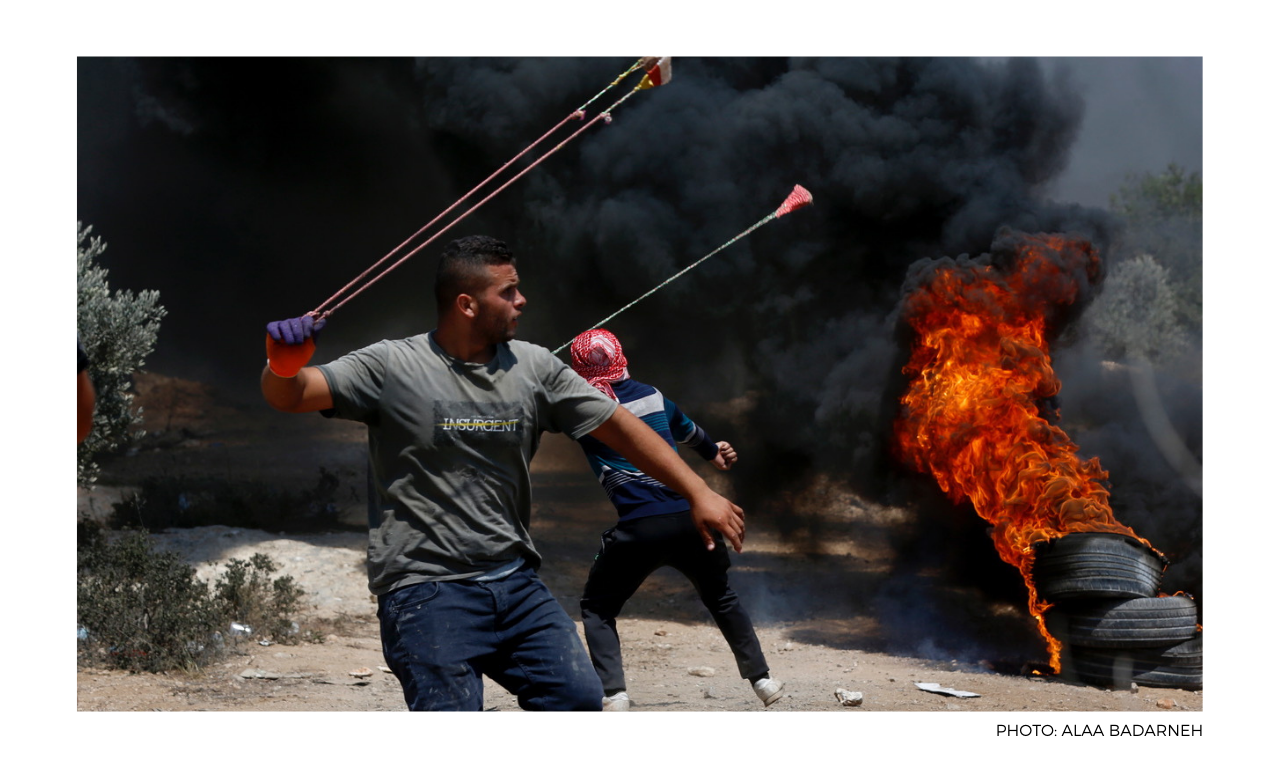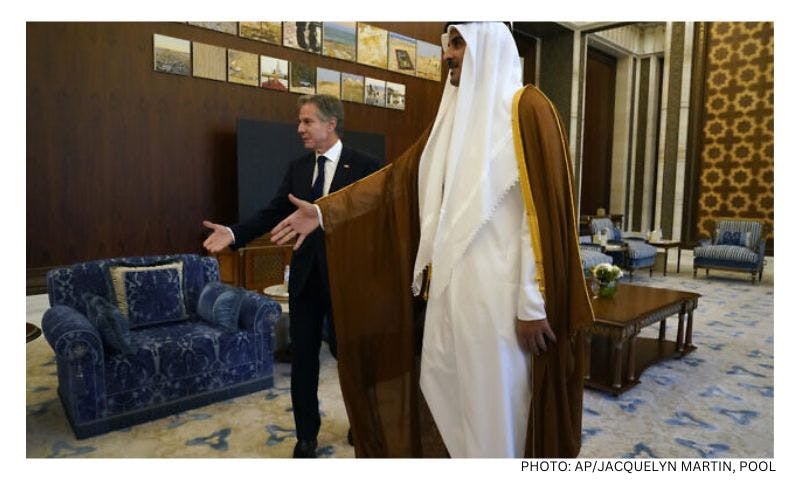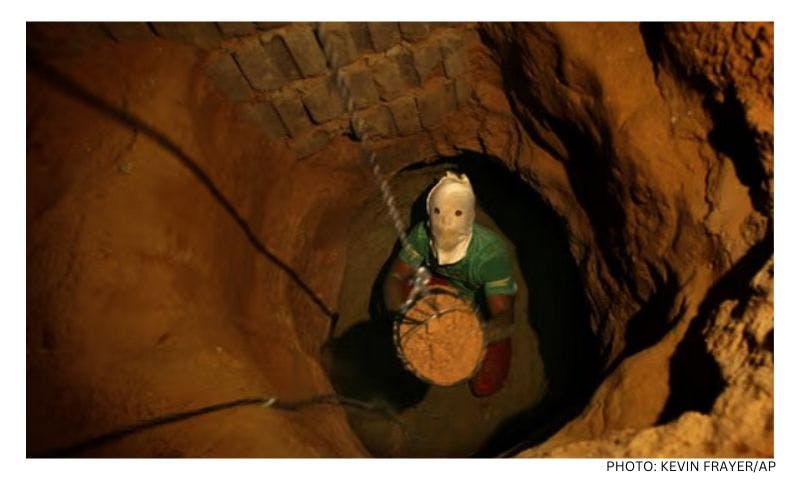Published: 23 July 2021
Last updated: 4 March 2024
BEN LYNFIELD: Passion runs deep on both sides in the Palestinian village of Beita, where residents are resisting settlers who established an illegal outpost
BEITA, WEST BANK — Amid allegations of excessive force and using deadly live fire, the Israel Defence Force has thus far been unable to quell a heated uprising by residents of this Palestinian town near Nablus that has raged since May.
It was then that Israeli settlers seized the top of the Sabih Mountain overlooking Beita homes, established an illegal settlement outpost there and renamed the area "Evyatar".
The settlers, who believe their actions facilitate the coming of the messiah and redeem divinely endowed land, vacated the hilltop for now under a deal with the government.
But Beita residents keep challenging the troops guarding the settler buildings that were allowed to remain on Sabih Mountain, even though Palestinians and settler watchdog organisations say they were erected on Palestinian-owned private property.
That claim, if tested, would put the settlers, the IDF and Israeli government in violation of Israeli law and the Fourth Geneva Convention, which prohibits countries from moving their nationals into occupied territory.
'The army thinks it will deter us but it just makes our opposition stronger' - Said Hemayel
Since May 1, four Palestinians have been killed and 2499 injured in the clashes with the IDF sparked by the creation of Evyatar: 1893 of the injuries were from tear gas inhalation, 426 from rubber coated metal bullets, 125 from live fire, 14 from physical assault and 41 categorised as "other", according to the UN's office of the coordinator of Humanitarian Affairs.
"The army thinks it will deter us but it just makes our opposition stronger," said Said Hemayel, a retired Palestinian Authority employee whose 16-year-old son Mohammed was shot dead by troops on June 11.
He said his son was throwing stones towards troops but not from a distance that endangered them. "The stones couldn't reach the soldiers. They made a decision to execute him." The IDF spokesman's office did not respond to a request for a response.
"It's our property. We are defending it,"Hemayel said.
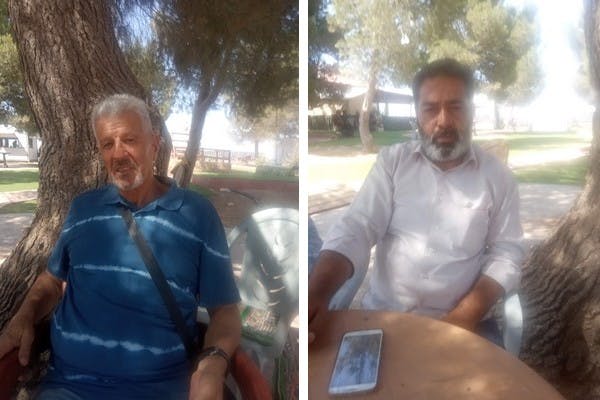
The Palestinians throw stones and roll burning tyres at the troops and also shine lasers at them. They say they do not throw Molotov cocktails. Every Friday there are large demonstrations in which Beita residents seek to go up the mountain but there are also attempts to harass the soldiers on week nights.
The IDF spokesman's office did not respond to a query on what challenges troops face nor did it answer if there were any injuries among soldiers. The IDF spokesman also rejected two requests to interview an officer from Central Command familiar with the situation in Beita.
Jeremy Saltan, director of English language operations for Prime Minister Naftali Bennett's Yamina party, told The Jewish Independent: "The residents of Evyatar are confident it is not private property. I would like to believe it is not privately owned. There will be a full survey."
He added that the fact the buildings were left standing rather than removed is one indication that the new government is more supportive of settlement than the Netanyahu government was. "The Fourth Geneva convention does not apply since in the Oslo agreement the Palestinians themselves agreed to Israeli administrative control of Area C," he said.
The land known as Area C is the part of the occupied West Bank where the settlements and rural Palestinian villages are located that is designated as being under full Israeli control and where Israel demolishes Palestinian homes on the grounds that they are built without permits that are virtually impossible to obtain.
This is as opposed to Area A, which is supposed to be under full Palestinian control and Area B, which is supposed to be under Israeli military control and Palestinian civilian control.
On Sunday July 11, troops sealed off all traffic at the main entrance to Beita, whose population is about 16,000. This forced residents to take a long and circuitous route through a neighbouring village to enter and exit. The IDF spokesman's office did not respond to a request for an explanation.
The residents of Evyatar are confident it is not private property. There will be a full survey - Jeremy saltan, spokesman for Yamina
Evyatar was established in early May after 19-year-old Yehuda Guetta was shot dead by Palestinians at the nearby Tapuah Junction. At the time the country was preoccupied with the clashes in Jerusalem and the run up to the Gaza conflict. It is named after Evyatar Borovsky, a settler killed in the same place eight years ago.
Veteran settler leader Daniella Weiss, who was instrumental in the establishment of Evyatar, told The Jewish Independent it is a major breakthrough for settlers. "This is opening a new chapter in the settler movement. For the last 20 years it has become a rule that building at existing settlements is okay but that new ones are out of the question.
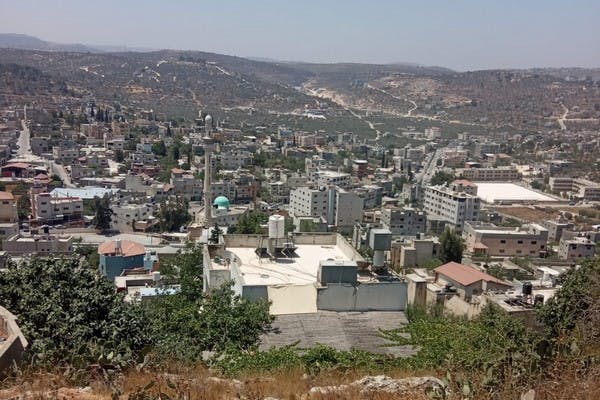
“Evyatar changes this. It's a precedent and that's why we see such a hard reaction on the part of the Left and the Arabs."
"They never went on the hill," she said of the Palestinians. "It was a bare hill waiting for redemption." She termed Palestinian ownership claims "a pile of lies", adding that Palestinians invariably present false documents to Israeli courts.
Weiss said that establishing Evyatar is part of a process that will in two stages bring about the coming of "Messiah, son of David."
But Dror Etkes, head of the Kerem Navot settler watchdog group, said Evyatar is "absolutely on privately owned Palestinian Land" which was well cultivated before the IDF established a base there during the 1980s.
He said the army never issued a seizure order and soldiers left in 1990, leaving behind cement that made it impossible to cultivate the land.
"The settlers want to show they are dominating Israeli politics and can do whatever they want. Rather than block them, the army supports them. The military is supporting apartheid," said Etkes, who served as a paratrooper in the West Bank during the first intifada uprising.
'The army never issued a seizure order and soldiers left in 1990' - Dror Etkes, head of the Kerem Navot settler watchdog group.
The IDF used "insanely excessive force" during the protests last Friday, according to Yonatan Pollak, an Israeli anti-occupation activist who participated in the protests that day alongside the Beita Palestinians.
"The soldiers were in no way under any threat, definitely not life threat and they used live ammunition in ways that you don't use rubber bullets. I helped evacuate seven people injured from .22 calibre live ammunition.
Most of the wounds were in the lower part of the body, one kid was hit in the chest and the abdomen. Some people were hit by two bullets, because the soldiers shoot them in bursts of three." The IDF spokesman's office did not respond to the allegation of excessive force.
In addition to Mohammed Hemayel, the Beita Palestinians slain by the IDF since May were identified as Zakaria Hemayel, 25, a teacher; Issa Hemayel, 38, a father of four who held a PhD in law and was an employee of the Palestinian Authority; and Ahmed Banishamsa, 16. (Hemayel is a large extended family in Beita).
Said Hemayel said his son Mohammed was at the top of his class. "He was faithful to his friends and they were faithful to him. Some of his friends wear necklaces with pictures of Mohammed and visit his grave daily."
According to the deal struck by the government with the settlers, the government will examine whether the land is privately owned by Palestinians or can be defined as "state land" which in practice Israel uses for illegal settlement activity. Plans call for a yeshiva to be established in Evyatar if the land is retroactively determined to be state land.
It is not the first time that Beita has faced harsh treatment from the IDF. In April 1988, at the height of the intifada uprising, armed settlers escorting children on a Passover hike, decided to turn towards the town. The group came under stone-throwing attack and a settler guard, Roman Aldubi, shot and killed a local farmer.
The group proceeded into the heart of Beita, where it came under a stone-throwing barrage. One of the stones hit Aldubi, who inadvertently shot and killed a 15-year settler hiker, Tirza Porat, according to a subsequent IDF investigation.
The IDF did not wait for the results of the investigation. With Prime Minister Yitzhak Shamir calling for revenge of Porat's death, soldiers blew up the houses of 14 families. Defence minister Yitzhak Rabin deported six Beita residents to Lebanon.
On Sunday in Beita, sitting at a table in the shade across the valley from Jebel Sabih, Musa Abdul-Muti Elayan said the settler caravans are on his land. "I have 30 dunams there that I inherited from my father," said Elayan, who holds a doctorate in mass communications and was Middle East correspondent for the Spanish news agency EFE.
"My father, brother and I planted 250 olive trees in the early 1960s. If you go there, you will find only 50. Why? The army didn't let us take care of the trees. In 1988, I worked there twice and soldiers said ‘no, it is a military zone’ and pointed their guns at me."
"It's clear it's our land and we can't abandon it. Land for us Palestinians is very precious. Land is honour. The land went from my grandfather to my father to me. It is more than material value."
"We will struggle till we retrieve it. This is clear to everyone in the village. They can call it Evyatar but it's always been Sabih Mountain."
STATEMENT BY THE IDF (Editor's note: this statement, in response to specific questions by the reporter, was received after the article had been written)
"In the last few weeks, day and night, violent riots have taken place in the area of the "Givat Evyatar" outpost in the Samaria Regional Brigade. During these violent riots, hundreds of Palestinians have thrown stones, set fires, burnt tyres and thrown explosive devices towards the IDF troops in the area.
Due to multiple violent and life-threatening riots, military troops were stationed at the site in order to protect the lives of the civilians and residents in the area and to deal with the riots.
While handling the riots, IDF troops use riot dispersal means and in cases that require it-live fire, in accordance with the relevant standard operating procedures.
The standard operating procedures are classified and therefore may not be published. However, we note that the rules regarding the use of "Ruger" bullets (.22 calibre bullets fired from the US made Ruger rifle, initially advertised by the company as a small game hunting rifle BL) haven't changed in recent years and the rules regarding the use of "Ruger" bullets are the same rules that apply to the use of live fire.
Within the IDF, incidents occurring during operational activity are regularly reviewed in-depth, in order to examine whether there has been a deviation from the binding rules and to draw lessons learned.
As a rule, every incident in which a person is killed during operational activity of the IDF in the area of Judea and Samaria is examined, including by way of a military police investigation.
READ MORE
PM reviewing deal to relocate Khan al-Ahmar residents to Israel – report (Times of Israel)
Palestinians report 10 wounded by live Israeli fire near site of evacuated settlement outpost (Haaretz)
Photo: Palestinian protesters throw stones at Israeli troops after a demonstration against the expansion of Evyatar on the lands of Beita village near Nablus, July 16 (Alaa Badarneh)
